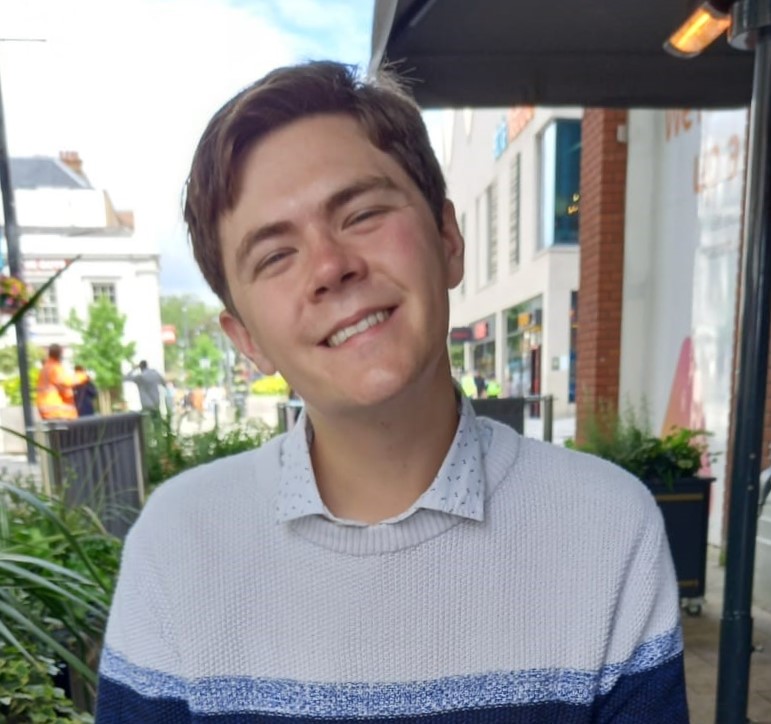
In what ways have you been collaborating with other researchers at Surrey?
I was the research events coordinator for SLL from 2018 – 2020, which involved running events (initially in person, but eventually online as of March 2020) as well as bi-weekly catch-up with the other students in the cohort. I also was on the organising committee for the TECHNE Philosophy and Critical Methods conflux from 2018-2021, which involved planning and organising events. While this was a TECHNE project, it was organised in conjunction with Surrey’s Doctoral College.
What have you gained by working with other researchers, that you might not have achieved on your own?
Working with other researchers gives much, much more fertile ground for making, growing, and initiating ideas. PhDs are often very isolating – working in a team creates a comforting safety net to catch you in those moments of isolation, providing a network of other PGRs to share problems with or create new experiences with. It also is generally great for offering fresh perspectives and ideas that make creating events a much more smooth experience.
Why do you think it is valuable to be collegial with other researchers?
Having collegiality with my PGRs in SLL has been the most fulfilling part of my PhD for me. Connecting with other PGRs has major value, for a number of reasons. For me, the support is key – via our social media channels in SLL the achievements of our PGRs are always being celebrated, and this creates a lovely sense of appreciation for the researchers and culture we are surrounded in. It’s also a lovely confidence boost to see everyone’s kind messages of support!
How do you deal with competitiveness and imposter syndrome when working with other researchers?
Imposter syndrome is an issue for all of us, I think! While, yes, admittingly this does develop from discussions with other researchers sometimes, realistically this connectivity we all have does more good than harm – we’re all in the same boat, and while it may be rough sailing sometimes, a sturdy crew can often help you through. Sometimes just talking about concerns and issues can make you feel tonnes better. To give a specific example – when we have organised teaching forums in the past for those interested in or those starting teaching, it has resulted in imposter syndrome when you hear everyone’s fantastic seminar plans, the speed that they can mark scripts, or their attendance over the semester. You soon realise, though, that everyone doubts themselves at least a little bit – just recognising this as a group helped tremendously, and does help with confidence overall.
How has being involved in these collaborations impacted on your own success?
There have been times where my thesis writing has taken a back seat while I focus on a collaborative project – but this is also true the other way around. Being involved in collaborations has made my time during my PhD fulfilling, and it has encouraged me to seek opportunities for further collaborative projects; as quite a shy or “quiet” person this is not something I would have considered before starting my PhD at Surrey. Everyone has different workloads and different styles of research but for me, taking on PGR community projects and collaborative roles has definitely developed both my research and my personal skills.
